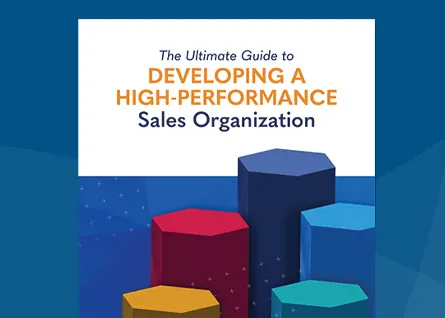Perspicacious Selling

Recently I discovered a new word, perspicacious. I had not noticed it in common sales vernacular. It means intelligence manifested by an astute understanding or clarity, as in business dealings. Then it dawned on me, with consultative selling, solution selling, and value selling, and a plethora of others, why hadn’t anyone developed “Perspicacious Selling?” In this article, we will explore the potentiality of a brand-new sales methodology (I know just what the sales profession needs, another methodology) and what it would mean to be a perspicacious sales practitioner.
Perspicacious Selling vs. All Other
Unlike the show-up and throw methodology practiced by sales Neanderthals, perspicacious selling involves a new level of cognitive functioning. Buyers are inundated with sales reps who confirm the stereotype by talking fast, being pushy, and do not listen. A perspicacious sales approach would be different. It starts with the assumption that buyers have never been more informed. Recent studies support this hypothesis, according to Gartner, 77 percent of B2B buyers reported their last purchase was complex. Forrester reported that more than four people were involved in the decision-making process in 2021. To state the obvious, buying today is complicated, and the perspicacious seller recognizes this fact upfront.
That’s where perspicacious selling can flip traditional sales methodologies on their head. Instead of thinking about the challenges of selling, we can look at the challenges of buying. Buyers are so educated prior to the initial conversation with a salesperson, how can a sales rep present a solution prior to assessing the prospects’ current thinking? In other words, instead of the sales rep talking about their product or solution, they listen to the buyer’s point of view. Traditional sales reps love to talk, but perspicacious sales reps ditch the pitch.
A sales rep who is only a product expert cannot uncomplicate the buying process for a prospect; they can only offer products. To uncomplicate the buying process, the sales rep needs to have product knowledge without question, but they also need to understand the prospect’s business, the innerworkings of their department, strategy, and obstacles preventing them from achieving their desired outcomes. The only way a sales rep could understand all this is through experience, dialogue research, and data.
Think about this for a second. Instead of sales reps memorizing rebuttals to standard objections, they invest in understanding their prospect’s industry trends, the business’s challenges and the individual’s unique concerns. What would this type of insight do for the buyer? Only deepen the relationship and build trust. To accomplish this level of relationship, the seller’s role has to change from a product information source to a trusted advisor.
The Key Difference
When you think about traditional sales methodologies, they are a lot like a patient’s trip to a doctor’s office. The patient is not feeling well, something has changed, but they don’t know what’s causing it, or how to fix it. So they schedule an appointment with their family physician. The doctor says, “Tell me, what’s bothering you?” At this point the patient goes into detail about their issues, symptoms, and problems. This is very similar to the consultive or solution selling methodology. It works fine if the buyer understands their problem AND feels comfortable sharing that information. But today, many buyers don’t have the time and patience to explain their problems in detail to sellers. They want their sales rep to bring additional value rather than offering two aspirins and a “call-me-in-the-morning.”
Buyers all have blind spots around problems, inefficiencies, and challenges. They know they have pain but are uncertain or unaware of the root cause. They’ve done enough research to create a short list of potential solution providers. At this stage, it’s not the sales rep’s role to pitch a product, even though many sales reps want to think it is. Now is the time for the sales rep to demonstrate they understand the challenges and position themselves as the trusted advisor.
In place of the product pitch, the sales rep enlightens the buyer with a story. Not a story about the company’s history or how the business got started, but a story that demonstrates how they identified a similar problem for a similar client and the benefits the previous client realized from working with them. For example, instead of a software sales rep jumping into the demo, they would ask probing questions around past problems the client faced:
- How are you handling duplicate data entry?
- Does this force your accounting team to work late into the night around the end of the month?
- Are you struggling with forecast accuracy?
The goal of the probing questions is for the buyer to be nodding their head up and down, while saying, “YES, YES, YES. These are the exact problems we are facing.”
But traditional sales reps never get their prospect’s head nodding up and down in agreement. Why? Because they go right into the software’s features and hope the buyer will see the value and connect the dots about how it will help them. Unfortunately, modern buyers are not like patients and can’t be prescribed a solution until they trust you understand their problems. They have too many choices and too little time. Therefore, they only want to work with trusted advisors who understand their individual challenges.
Only the Perspicacious Need Apply
This is why perspicacious is the perfect word for modern selling. Buyers find it difficult, even chaotic, to navigate in this fast-changing environment. In chaos, there is rarely a clear path forward. Change is happening rapidly. Buyers sense the changes but do not want to choose the wrong path forward. For this reason, the sales rep who is quick-sited and penetratingly discerning will be the solution provider modern buyers prefer. The perspicacious sales rep would be able to quickly figure out, from among a hundred things, those things that would make a significant impact on the buyer.
The need for perspicacious and empathetic sales reps has never been greater. The constantly changing business environment creates a volatile, uncertain, complex, and ambiguous future known as VUCA. As proof, 52% of the Fortune 500 companies have gone bankrupt, closed, or no longer exist since 2000, according to Capgemini. It is harder than ever for businesses to keep pace and the ones that cannot keep up, do not survive. This places a huge responsibility on sales leaders to guide organizations, help them reinvent themselves, and disrupt the status quo.
In Conclusion
Adding a new sales methodology to already overflowing sales techniques may just add confusion to the industry. We don’t need fancy words or esoteric theories to help our clients. What we need is a deep understanding of our client’s needs and a concise way to articulate our understanding of their challenges. Today’s buyers face numerous pressures and challenges, and they do not want long-winded product pitches when they are searching for insights they can trust.
Trust is the lubricant that drives the modern buyer’s decision-making process. Like Satya Nadella, the CEO of Microsoft, said: “Organizations run on trust.” No matter how sophisticated or promising a solution is, if there’s no trust, there is no sale. On the other hand, if there’s high trust, buyers are willing to open up and collaborate on unlimited opportunities. Perspicacious is just a fancy word for being acutely perceptive with good judgment. Which, when you think about it, is exactly what modern buyers are looking for from their next sales rep.

- Account Planning (11)
- Awards (49)
- Client Testimonial (37)
- Personal Branding (19)
- Podcast (11)
- Research (70)
- Sales Career Development (87)
- Sales Coaching (156)
- Sales Consulting (137)
- Sales Culture (170)
- Sales Enablement (354)
- Sales Leadership (110)
- Sales Management (248)
- Sales Negotiation (16)
- Sales Prospecting (124)
- Sales Role-Playing (18)
- Sales Training (234)
- Selling Strategies (263)
- Soft Skills (70)
- Talent Management (94)
- Trusted Advisor (27)
- Virtual Selling (49)
- Webinar (9)



























